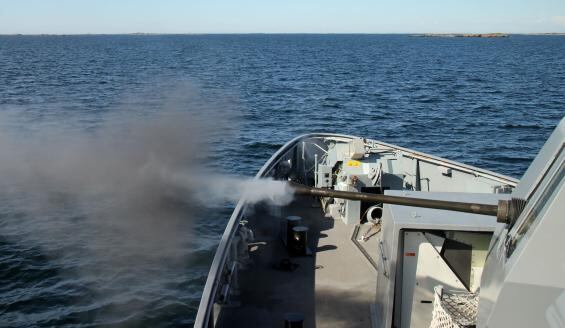Just by looking at the map, it is evident why the Arctic region matters so much to Finland. Although Finland is not a littoral Arctic country, a sizable part of the Finnish territory lies above the Arctic Circle. Finland is located in both the Arctic and the Baltic Sea regions, which are increasingly perceived by defense planners as a single, Northern European operational theater.
The broad geopolitical interest toward the Arctic region is hardly a new phenomenon. Apart from the couple of decades after the Cold War, the military strategic importance of the Arctic has been mainstream during most of the past 80 years. Today, strategic considerations have returned, combined with prospects of increasing navigation and economic activities.
The Arctic is not insulated from broader global security dynamics and challenges, be it great power competition or the impacts of climate change. Russia is a key actor in the Arctic, especially militarily. It controls a significant portion of the Arctic coastal line and has strong economic and security interests in the region. China has declared itself as a “near Arctic state” and included Arctic sea lines in its Polar Silk Road initiative. China has demonstrated its interest, for example, in low-temperature expertise, Arctic infrastructure, digital connectivity and natural resources.
RELATED

The Finnish government is drafting a new whole-of-society strategy for our Arctic policy, which will lay out the objectives in the long term as well as resources needed to achieve them. Arctic issues also play an important part in Finland’s foreign policy and international role. In our view, international affairs in the High North should primarily be the responsibility of the Arctic countries. Finland worked hard to promote cooperation among this group during the recent chairmanship of the Arctic Council.
For a nation located as far north as Finland, Arctic conditions need to be taken into account in everything we do. In Finnish defense, the Arctic permeates all the way through thinking, planning and operations. We do not have a specific Arctic defense strategy or “Arctic capabilities,” simply because everything in defense is designed to function in Arctic conditions.
Defense cooperation with our partners is an essential element in the Finnish defense policy. Cooperation in the north is very close with Norway and Sweden. We also benefit from broader regional cooperation under the Nordic Defence Cooperation framework involving Denmark, Finland, Iceland, Norway and Sweden. Another important group is the British-led Joint Expeditionary Force, which includes nine countries from Northern Europe. This group has chosen as its regional focus the High North, North Atlantic and Baltic regions.
Exercises play a key role in developing interoperability and common understanding. The Finnish Defence Forces conduct regular national exercises in Arctic conditions. Some of them include international participation, such as the forthcoming main joint exercise Arctic Lock in 2021, which will provide versatile opportunities to test interoperability in a northern environment.
Finns also participate in Arctic exercises abroad. One good example is the air combat exercise Arctic Challenge, jointly executed every second year by Denmark, Finland, Norway and Sweden with a rotational lead role, while the United States Air Force provides considerable support. This sizable exercise sends a clear signal of the strong ties that exist between the Nordic countries and across the Atlantic, and serves as a stabilizing factor in the region. We are looking forward to the next Arctic Challenge under Norwegian leadership in 2021.
In dealing with the region, military and policy planners are well advised to maintain the convention of treating the Arctic as a “low tension” area. However, we have to acknowledge that security does not work in a vacuum, and it is impossible to keep the Arctic isolated from the wider security context. Although the risk of military confrontation in the Arctic remains low for the time being, the possibility of a spillover from conflicts elsewhere must be taken into consideration.
By far the largest reason for concern is the impact of climate change in the Arctic. In this region, we are among the first to feel the effects of global warming. The Arctic ecosystem is very fragile, while the rise of temperatures is higher than the global average. And what happens in the Arctic has consequences for the rest of the world, as melting of the Arctic’s ice cover accelerates climate change on a global scale. As the Finnish president has often said: “If we lose the Arctic, we lose the globe.”
Keeping trouble out of the agenda does not make it disappear. What we need is well-functioning dialogue and cooperation to deal with common issues, be they security and defense or climate concerns. Keeping a watchful eye, maintaining and exercising defense capability, and increasing domain awareness are different from “militarizing” the Arctic. Together with its partners, Finland is committed to continue promoting stability in the Arctic region.
Janne Kuusela is the defense policy director, at Finland’s Ministry of Defence.








